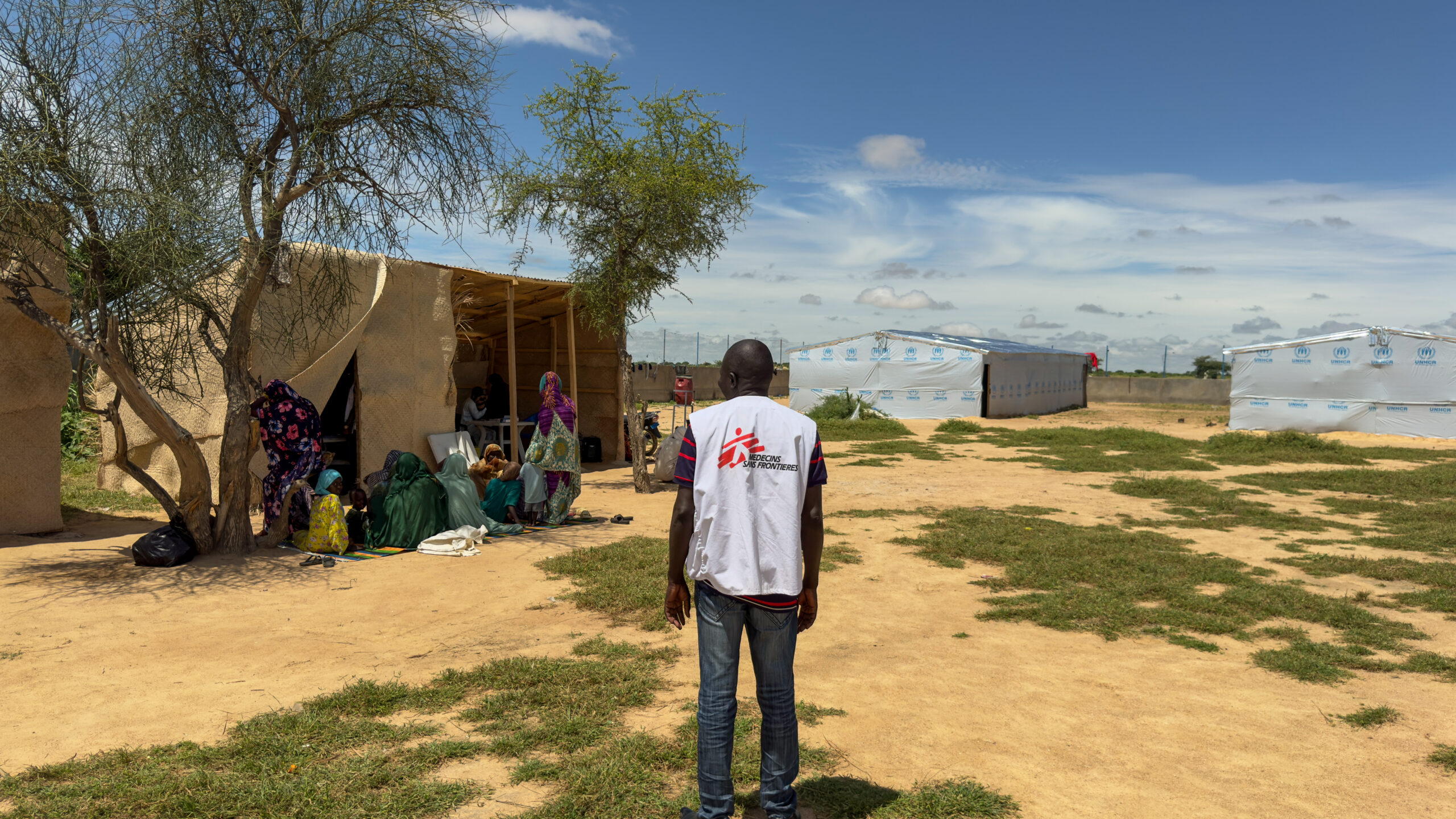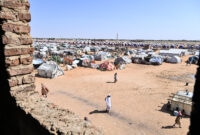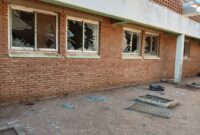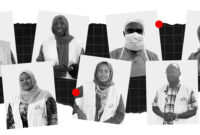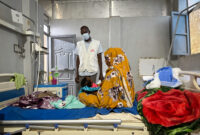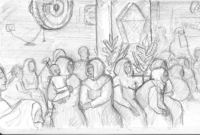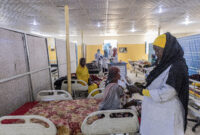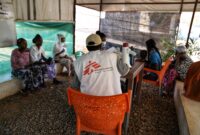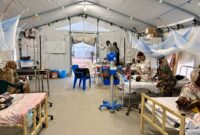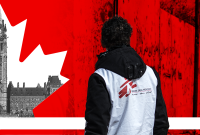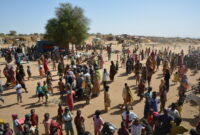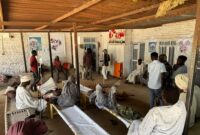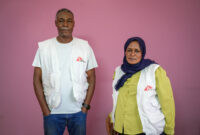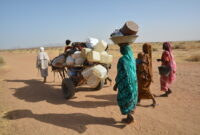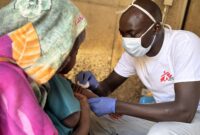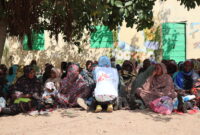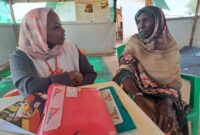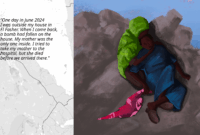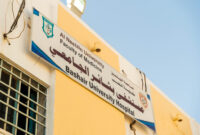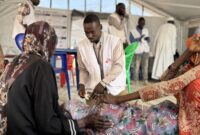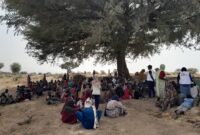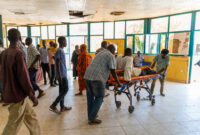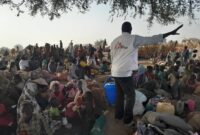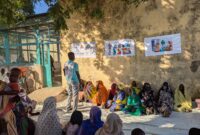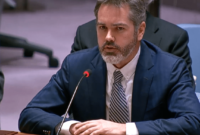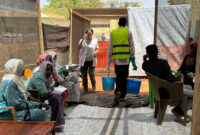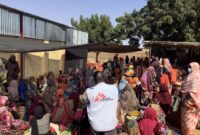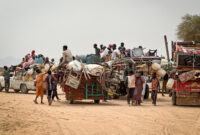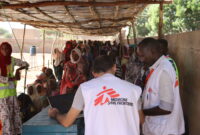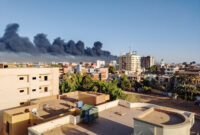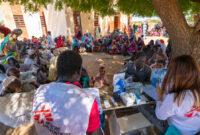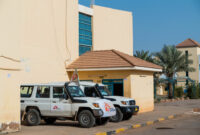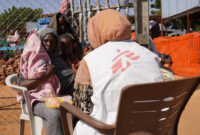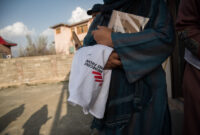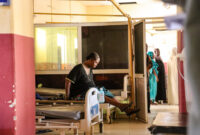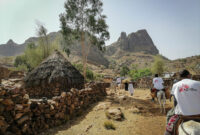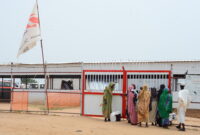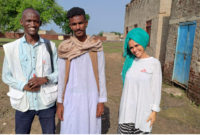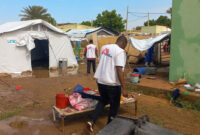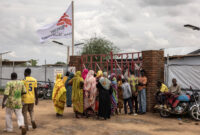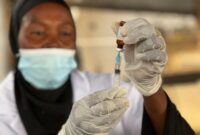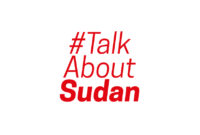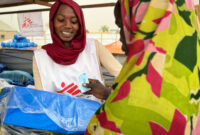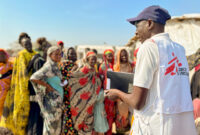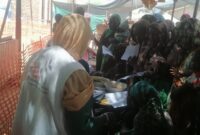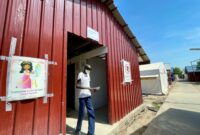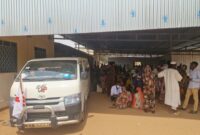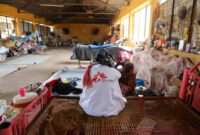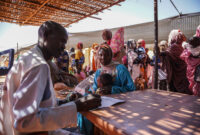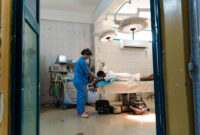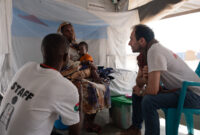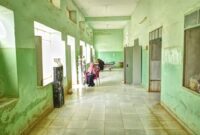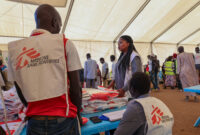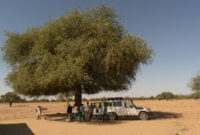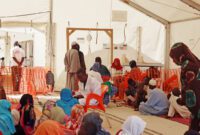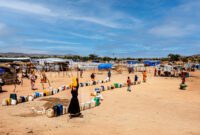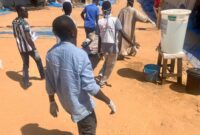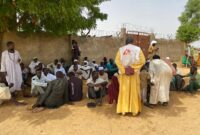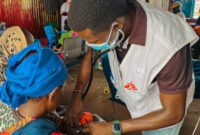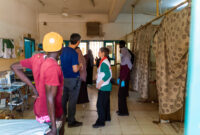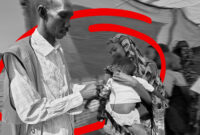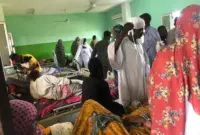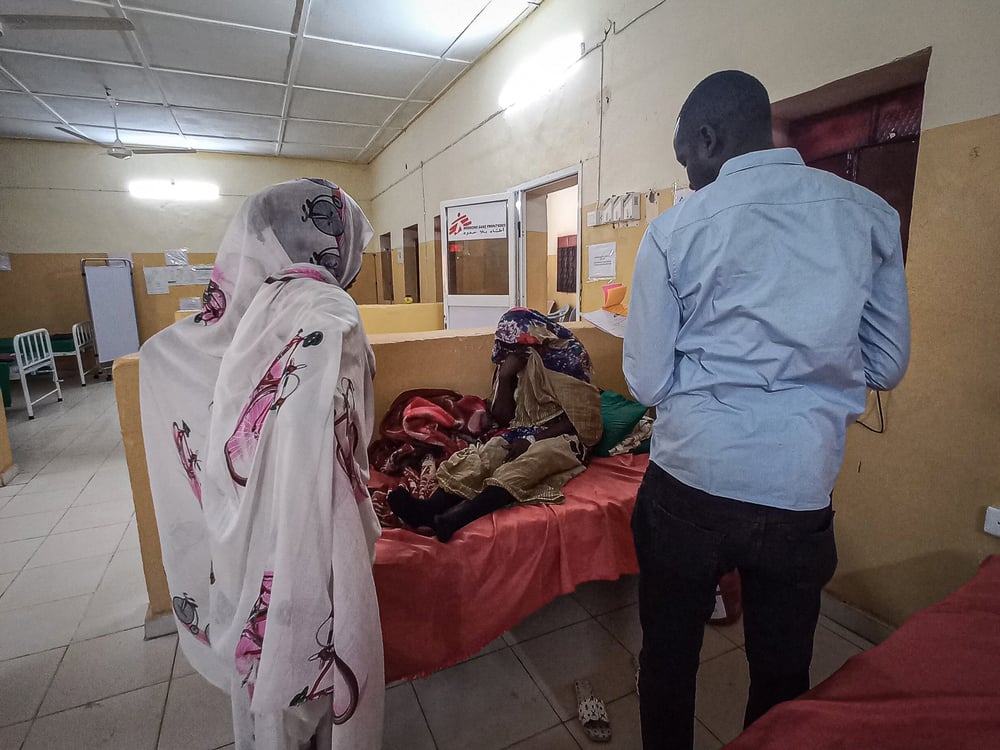Chad: MSF calls for urgent aid to support Sudanese refugees
People face malnutrition, overcrowding and scarce humanitarian assistance upon arrival in Chad
In the Tine transit camp and the nearby refugee camps in eastern Chad, close to the border with Sudan, Doctors Without Borders/Médecins Sans Frontières (MSF) is scaling up assistance to newly arrived refugees from Sudan. They are fleeing escalating attacks and violence in North Darfur. Since the end of April, an estimated 40,000 refugees, the vast majority coming from El Fasher and its surrounding camps for displaced people, have arrived in Tine, in Wadi Fira province. Many people already living in an extremely vulnerable situation now face harsh overcrowded conditions and limited access to basic services.
On arrival in Tine, some people are malnourished and experiencing profound psychological distress due to the horrific violence in North Darfur and on the roads leading to Chad. The overwhelming majority are women and children coming from El Fasher and Zamzam camp for internally displaced people. They have already endured starvation as the Rapid Support Forces laid siege to these areas and famine conditions have been prevalent for months in Zamzam camp, according to the Famine Review Committee.
“We’ve walked a long way to get here. We passed through several villages to get to Tine to take refuge from the violence and bombings,” says one woman. “We’ve been here for several days but we’re struggling to find food and water. We’ve been wearing the same clothes for days.”
The Tine transit camp is currently hosting over 18,000 people, many of whom are sleeping on the bare ground in 40 °C heat, with no shelter and severely limited access to water and food despite support from the host communities.
“The current humanitarian response is insufficient and the upcoming rainy season it is likely to worsen living conditions, spread disease and exacerbate food insecurity and lack of sanitation.”
Claire San Filippo, MSF emergency coordinator in Sudan
MSF has scaled up medical and humanitarian activities in the transit camp and at the Tine border to increase availability of primary healthcare services. Apart from nutrition screenings and vaccination at the border point, over the past weeks, MSF has carried out over 900 consultations per week in the health post at the transit camp.
At the health post, the global rate of malnutrition among children under five is as high as 29 per cent, with nine per cent being severely malnourished. Routine vaccination efforts remain a priority in the camp as cases of measles have been detected. A mass vaccination campaign is ongoing. Finally, care for pregnant women and for survivors of sexual violence is also being provided at the health post.
MSF teams have also set up referrals of critical patients to hospitals and will build an additional 50 emergency latrines. MSF is also preparing further distribution of therapeutic food and essential items. Our teams are also distributing 60,000 litres of water per day but this is only half of what is currently needed.
“Sudanese refugees arrive exhausted, many malnourished and require immediate assistance,” says Claire San Filippo, MSF’s emergency coordinator for Sudan. “We ask donors, the UN and other humanitarian organizations to increase the mobilization to provide or scale up support in terms of food, shelter, sanitation and medical care including mental health services. The current humanitarian response is insufficient and the upcoming rainy season it is likely to worsen living conditions, spread disease and exacerbate food insecurity and lack of sanitation.”
The humanitarian situation at the border between Chad and Sudan has again reached a tipping point, with over 70,000 new refugees arriving in Chad since April 2025.
Despite the immense needs in Tine transit camp and other refugee camps in Wadi Fira, MSF is witnessing very limited humanitarian assistance distribution despite solidarity from the host community and grassroot organizations. The financial crisis affecting the entire humanitarian sector is clearly being felt in eastern Chad. The war continues unabated in Sudan and more people are hoping to reach Chad.
MSF is also present in refugee camps in Wadi Fira, such as Iridimi camp, where refugees from the Tine transit camp are being relocated. To help improve the dire situation in Iridimi camp, which has reached its maximum capacity, MSF recently started supporting the camp’s health centre. The activities focus on the continuity of primary healthcare, vaccination, strengthening epidemiological surveillance, improving patient flow, reinforcing the referral system and improving hygiene conditions. We also run mobile clinics in Chad, along the Sudanese borders, including in Kulbus and Birak.
The humanitarian situation at the border between Chad and Sudan has again reached a tipping point, with over 70,000 new refugees arriving in Chad since April 2025. Chad is already hosting over one million refugees, including more than 800,000 Sudanese who have arrived since the conflict began over two years ago.
